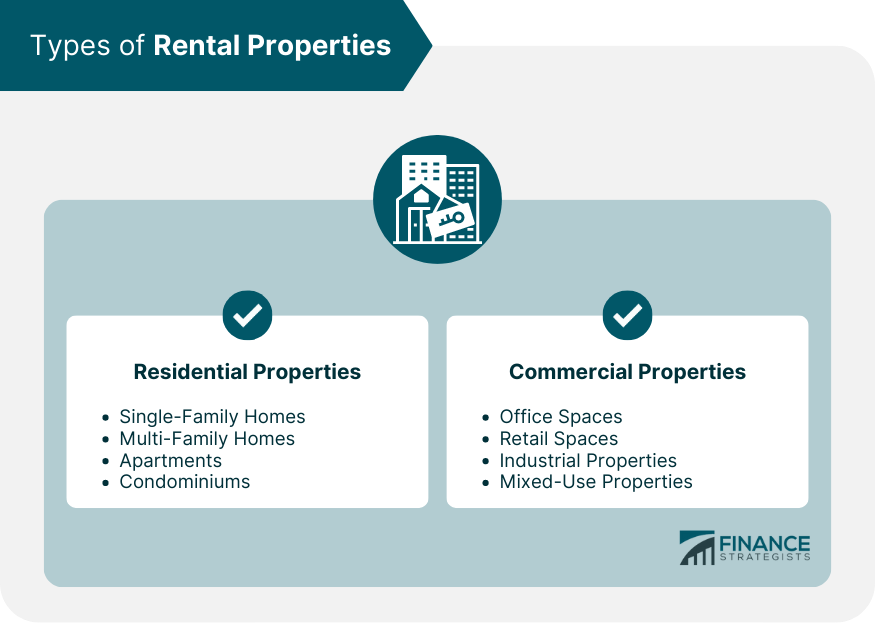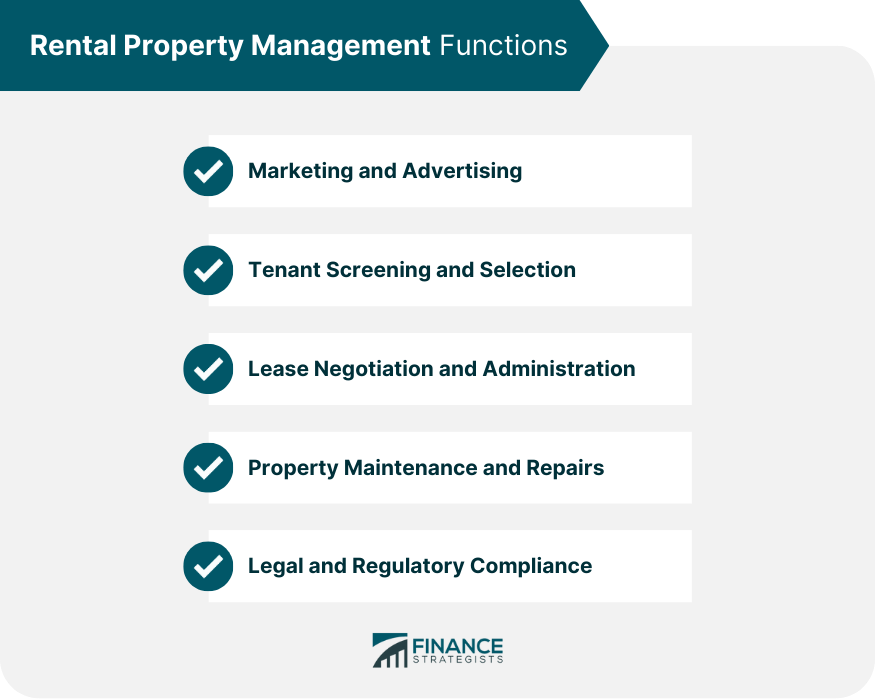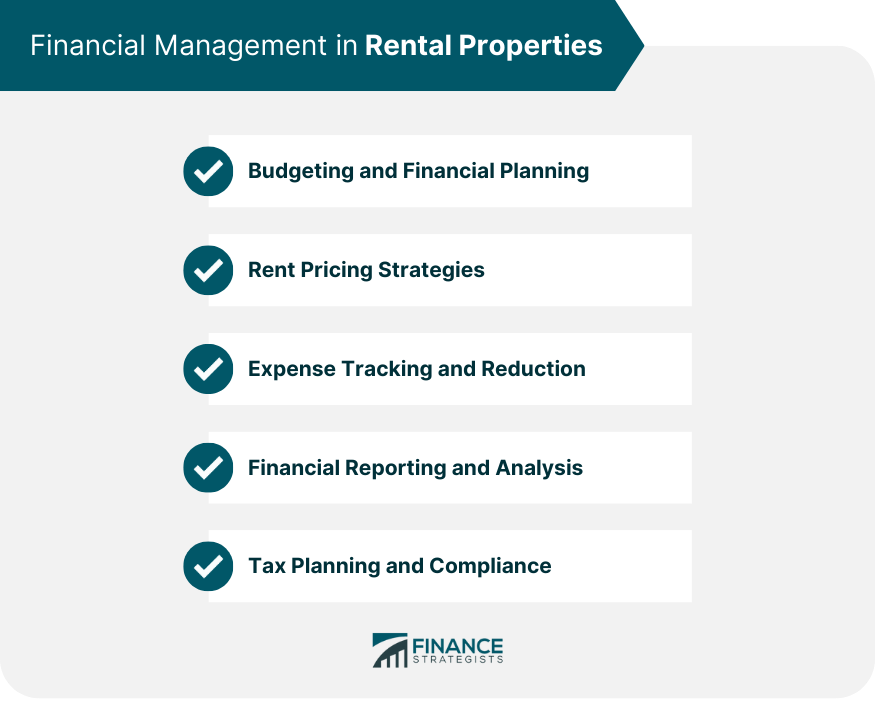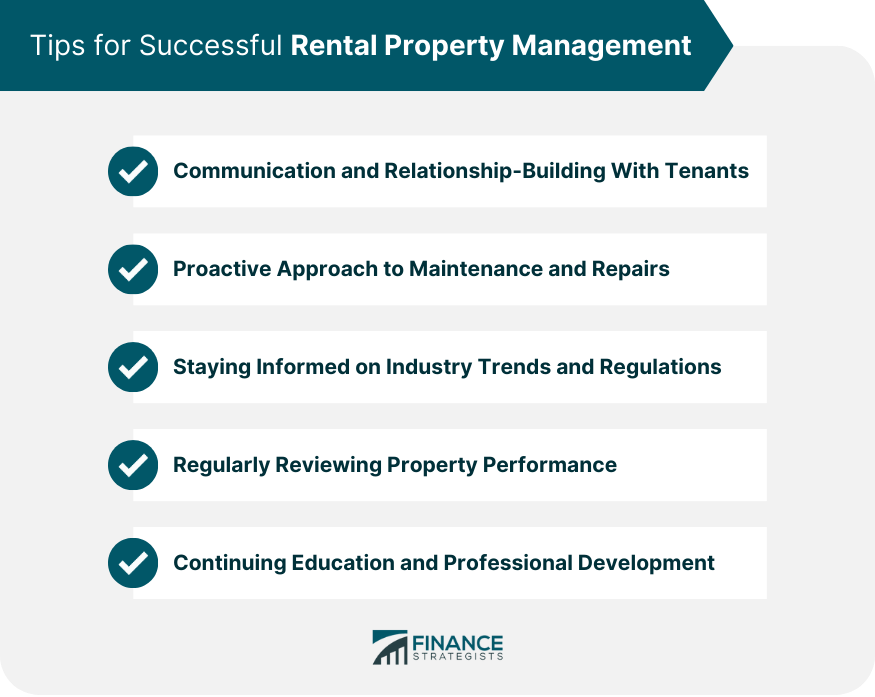Rental Property Management is the administration, operation, oversight, and control of real estate intended for lease. This involves a wide array of tasks such as marketing and advertising rental properties, selecting and managing tenants, maintaining the property, collecting rent, ensuring compliance with rental laws, and managing the finances and profitability of the property. These are standalone houses designed for occupancy by a single family. They are common rental property investments due to their high demand and potential for long-term tenants. These properties consist of two or more separate housing units within a single building or property. Examples include duplexes, triplexes, and fourplexes. Multi-family homes can provide a steady income stream due to multiple tenants. Apartment buildings are large residential structures containing multiple individual units for rent. They are a popular choice for property investors due to the potential for high rental yields and diverse tenant profiles. Condos are individual units within a larger residential complex. The owners of these units can rent them out to tenants, and they are subject to the rules and regulations of the condominium association. Office spaces are properties designed for conducting business operations. They can range from small executive suites to large multi-tenant office buildings. Rental property management for office spaces may involve lease negotiation, maintenance, and tenant relations. Retail properties are commercial spaces intended for the sale of goods or services. Examples include shopping centers, strip malls, and standalone stores. Managing retail spaces may involve marketing, tenant mix management, and common area maintenance. These properties are used for manufacturing, storage, or distribution purposes. Industrial properties include warehouses, factories, and distribution centers. Property management for these properties may involve specialized maintenance and compliance with industry-specific regulations. Mixed-use properties combine residential, commercial, and/or industrial spaces within a single development. They require a comprehensive understanding of different property types and their unique management needs. Property managers use various online platforms, such as Zillow and Craigslist, to create and manage property listings, reaching potential tenants efficiently and effectively. Traditional print media, like newspapers and magazines, can still be a valuable advertising channel for reaching specific target markets. Platforms like Facebook and Instagram can be used to create targeted ads and engage with potential tenants, showcasing property features and amenities. Yard signs and open houses can generate interest from passersby and provide opportunities to showcase the property in person. Property managers use rental applications to gather essential information from prospective tenants, including personal and financial details. These checks help property managers assess a tenant's financial stability, rental history, and potential risk factors. Property managers verify applicants' employment status and income levels to ensure they can afford the rent and meet lease requirements. Speaking with previous landlords can provide valuable insights into a tenant's reliability and behavior, helping property managers make informed decisions. Property managers create and enforce rental agreements that outline the terms and conditions of the lease, protecting both the property owner and the tenant. Managers negotiate lease terms, including rent amount, lease duration, and security deposits, to reach mutually agreeable arrangements. Property managers collect, hold, and return security deposits in accordance with applicable laws and regulations, ensuring proper handling and dispute resolution. Effective rent collection processes and enforcement measures help property managers maintain consistent cash flow and address any delinquent payments. Regular property inspections allow managers to identify and address maintenance issues before they escalate, preserving property value and tenant satisfaction. Property managers must respond promptly and effectively to emergency maintenance requests, coordinating with contractors and vendors to resolve issues as quickly as possible. Implementing a preventative maintenance plan helps property managers minimize repair costs, prolong the life of property assets, and maintain a safe and comfortable environment for tenants. Property managers often collaborate with various contractors and vendors to perform maintenance tasks, negotiate service agreements, and ensure high-quality work. Property managers must stay up-to-date with all relevant laws and regulations, ensuring that the property and its operations remain compliant. Managers must adhere to fair housing laws that prohibit discrimination in rental practices based on race, color, national origin, religion, sex, disability, or familial status. Property managers must ensure that their properties meet all building codes and safety requirements, addressing any violations and maintaining a safe environment for tenants. In cases where eviction becomes necessary, property managers must follow the proper legal procedures to protect the property owner's interests and minimize potential liabilities. Property managers create and manage budgets for property operations, maintenance, and improvements, ensuring the property remains profitable and well-maintained. Managers analyze market data and property features to set competitive rental rates that attract tenants while maximizing rental income. Monitoring property expenses and identifying cost-saving opportunities help property managers maintain profitability and improve overall financial performance. Regular financial reports provide property owners with insights into property performance and help identify areas for improvement or adjustment. Property managers can assist with tax planning and compliance, ensuring that property owners take advantage of applicable deductions and credits while meeting all tax obligations. Software solutions can streamline property management tasks, such as rent collection, maintenance requests, and financial reporting. Digital platforms for tenant communication facilitate efficient and responsive communication between property managers and tenants, improving overall satisfaction. Offering online rent payment options can make it easier for tenants to submit payments and help property managers track and manage incoming funds. Digital maintenance request systems can streamline the process of submitting and tracking maintenance requests, allowing property managers to respond more efficiently. Electronic record-keeping solutions help property managers maintain organized and easily accessible records for property operations, finances, and legal compliance. Maintaining open lines of communication and fostering positive relationships with tenants can improve tenant satisfaction and retention. Addressing maintenance issues before they escalate can save money, protect property value, and maintain tenant satisfaction. Continually updating knowledge of industry trends, best practices, and regulations helps property managers stay competitive and compliant. Consistent evaluation of property performance allows property managers to identify areas for improvement and adjust strategies as needed. Pursuing ongoing education and professional development opportunities can enhance property managers' skills, knowledge, and credibility, leading to better property management outcomes. Rental property management is a multifaceted process that involves several functions, such as marketing, tenant selection, property maintenance, legal compliance, and financial management. Different types of rental properties require specific management approaches, and utilizing technology and tools can help streamline management tasks. Successful property management involves effective communication with tenants, proactive maintenance, staying informed on industry trends and regulations, regularly reviewing property performance, and pursuing continuing education and professional development. By implementing best practices and utilizing rental property management tools, property owners and managers can optimize their rental income and enhance the value of their investment properties.Definition of Rental Property Management
Types of Rental Properties

Residential Properties
Single-Family Homes
Multi-Family Homes
Apartments
Condominiums
Commercial Properties
Office Spaces
Retail Spaces
Industrial Properties
Mixed-Use Properties
Rental Property Management Functions

Marketing and Advertising
Online Listings
Print Advertisements
Social Media Marketing
Signage and Open Houses
Tenant Screening and Selection
Rental Applications
Credit and Background Checks
Employment and Income Verification
Landlord References
Lease Negotiation and Administration
Rental Agreements
Lease Terms and Conditions
Security Deposit Management
Rent Collection and Enforcement
Property Maintenance and Repairs
Routine Inspections
Emergency Repairs
Preventative Maintenance
Coordination with Contractors and Vendors
Legal and Regulatory Compliance
Local, State, and Federal Regulations
Fair Housing Laws
Building Codes and Safety Requirements
Eviction Procedures
Financial Management in Rental Properties

Budgeting and Financial Planning
Rent Pricing Strategies
Expense Tracking and Reduction
Financial Reporting and Analysis
Tax Planning and Compliance
Technology and Tools for Rental Property Management
Property Management Software
Tenant Communication Platforms
Online Rent Payment Options
Maintenance Request Systems
Digital Record-Keeping Solutions
Tips for Successful Rental Property Management

Communication and Relationship-Building With Tenants
Proactive Approach to Maintenance and Repairs
Staying Informed on Industry Trends and Regulations
Regularly Reviewing Property Performance
Continuing Education and Professional Development
Bottom Line
Rental Property Management FAQs
Rental property management is responsible for overseeing, operating, and maintaining rental properties to optimize rental income, preserve property value, and ensure a positive tenant experience. By effectively managing marketing, tenant selection, lease administration, maintenance, and legal compliance, rental property management plays a critical role in maximizing the value of property investment.
Rental property management contributes to tenant retention and satisfaction by fostering open communication, promptly addressing maintenance issues, and ensuring a safe and comfortable living environment. By building positive relationships with tenants and providing responsive service, rental property management can improve tenant satisfaction, leading to longer lease durations and reduced vacancy rates.
Technology tools commonly used in rental property management include property management software, tenant communication platforms, online rent payment options, maintenance request systems, and digital record-keeping solutions. These tools help streamline various property management tasks, enhance efficiency, and improve communication between property managers and tenants.
Rental property management stays informed about local, state, and federal regulations, fair housing laws, building codes, and safety requirements. By regularly reviewing and updating property operations, maintenance, and leasing practices, rental property management ensures compliance with all relevant laws and regulations, minimizing potential legal issues and liabilities.
Continuing education and professional development are essential in rental property management because they help property managers stay current with industry trends, best practices, and changes in regulations. This ongoing learning process enables property managers to adapt their strategies and approaches, enhancing their skills and knowledge and ultimately leading to better property management outcomes.
True Tamplin is a published author, public speaker, CEO of UpDigital, and founder of Finance Strategists.
True is a Certified Educator in Personal Finance (CEPF®), author of The Handy Financial Ratios Guide, a member of the Society for Advancing Business Editing and Writing, contributes to his financial education site, Finance Strategists, and has spoken to various financial communities such as the CFA Institute, as well as university students like his Alma mater, Biola University, where he received a bachelor of science in business and data analytics.
To learn more about True, visit his personal website or view his author profiles on Amazon, Nasdaq and Forbes.













